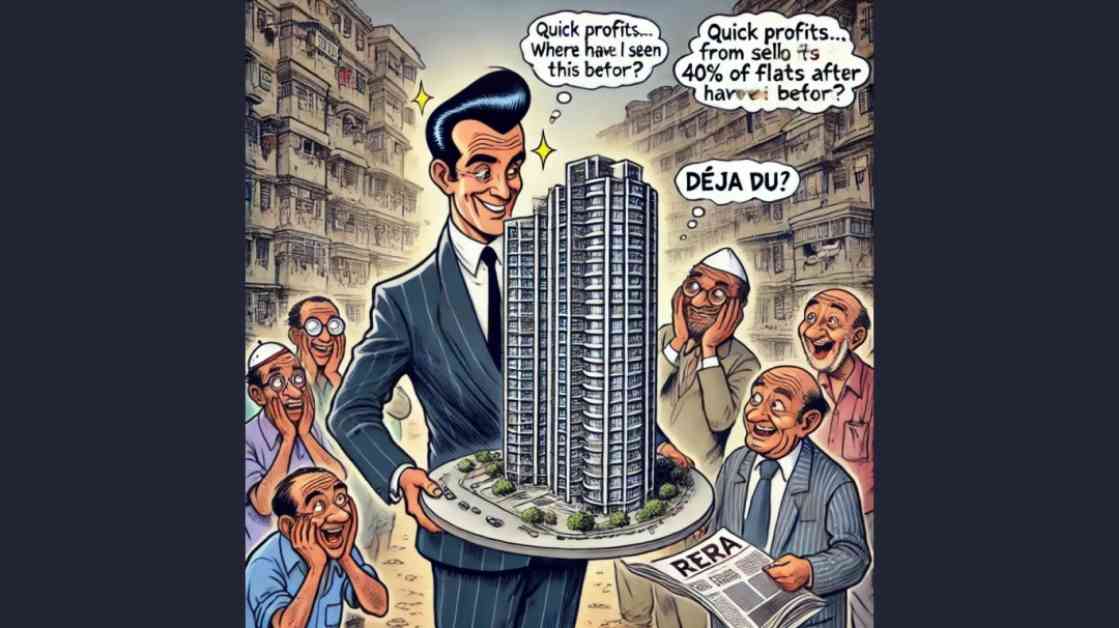Redevelopment Rush: Learning from Past Mistakes
The redevelopment fever in Mumbai seems to have gripped housing societies once again, reminiscent of the craze that swept through the city pre-2015. Developers are making enticing proposals, promising glossy amenities and quick profits, but are societies falling into the same traps as before?
In the past, developers came in with grand promises, society members eagerly signed up, and then many projects were left half-finished as developers vanished into thin air. The memories of stalled projects and broken promises seem to be fading as societies once again get dazzled by attractive offers without proper planning and due diligence.
One alarming trend that has surfaced is developers aiming to sell a large percentage of the project’s sale area as soon as the RERA registration is done. This quick profit strategy may benefit the developer in the short term, but it poses a significant risk to the long-term interests of the society. Society members must not overlook the importance of securing proper safeguards before embarking on a redevelopment project.
The Importance of Due Diligence
It is crucial for societies to conduct thorough background checks, assess the financial stability of developers, and understand their actual intentions before signing any agreements. The evaluation process of developers should go beyond just their reputation and past projects. Society members must delve into the developer’s leverage, financial health, and market standing to ensure a successful and sustainable redevelopment project.
Moreover, rushing into redevelopment without careful consideration can lead to dire consequences. If a building is still repairable and not in immediate danger, it might be wiser to take the time to plan and evaluate all options before diving into a redevelopment project. The fast lane isn’t always the safest route; sometimes, a more cautious approach can prevent future setbacks and uncertainties.
Securing the Future of Housing Societies
Society members must understand that selecting a developer is just the beginning of the process. The role of a Project Management Consultant (PMC) extends far beyond choosing a developer and involves overseeing the entire project to ensure its successful completion. By recognizing the importance of ongoing oversight and management, societies can avoid the pitfalls that have plagued redevelopment projects in the past.
It is essential for society members to approach redevelopment decisions with a long-term perspective, prioritizing the stability and well-being of their community over quick profits or flashy amenities. By taking the time to carefully plan, evaluate, and select the right partners for their redevelopment projects, housing societies can safeguard against potential risks and uncertainties, ensuring a successful and sustainable future for their residents.
In conclusion, the redevelopment fever sweeping through Mumbai must be met with caution and careful consideration. Society members must learn from the mistakes of the past and prioritize thorough due diligence, proper planning, and ongoing oversight to secure the future of their housing societies. By avoiding the pitfalls of rushed redevelopment projects and prioritizing long-term sustainability, Mumbai can build a brighter future for its residents.




















